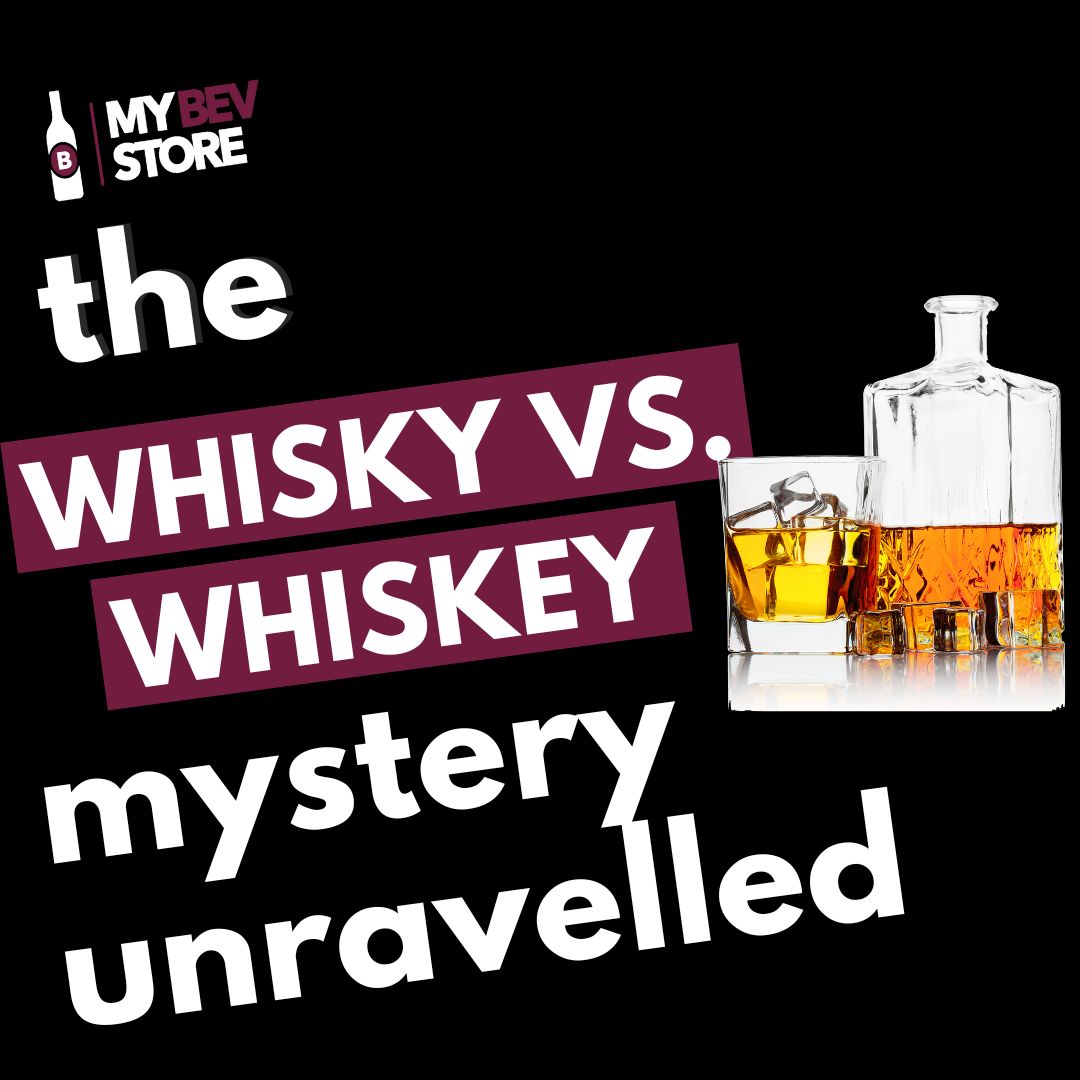Whisky vs. Whiskey: Unraveling the Spelling Mystery
September 28 2023

Whisky or whiskey? The age-old spelling debate rages on among distillers and drinkers alike. But what exactly is the difference, and why does this peculiar spelling discrepancy even exist in the first place? This guide will unravel the mystery of whisky vs. whiskey once and for all.
The Crux of the Whisky vs. Whiskey Dilemma
Whisky and whiskey essentially denote the same spirit - an alcoholic distillate made from fermented grain mash. The choice between “whisky” or “whiskey” stems from the varied cultural and geographical origins of different spirits worldwide.
Broadly speaking:
- Whisky (no E) is the preferred spelling for spirits distilled in Scotland, Wales, Canada, and Japan
- Whiskey (with E) is used for spirits from Ireland and the United States
But a deeper look into history explains the idiosyncrasies behind each spelling convention across regions.

The Origins of Whisky
The whisky tradition traces back to medieval Scotland and Ireland. Historical documents show the term "whisky" in its Gaelic form "uisge beatha" dating back to the 15th century. This translates to “water of life”, aptly describing the burn of distilled grain spirits.
As whisky production proliferated in Scotland through the 1700s, the Scottish spelling "whisky" became widespread. Today, leading whisky-producing nations like Scotland, Wales, Canada, and Japan uphold the tradition of using "whisky".
The Genesis of Whiskey
Whiskey (with E) has origins in Ireland, where the spirit was also referred to as "uisce beatha" in Gaelic. As distillation spread across Ireland in the 19th century, the Irish spelling "whiskey" gained prominence.
When Irish immigrants brought whiskey distillation techniques to early America, the Irish "whiskey" took root as the standard in the new world. Leading whiskey producers like the United States and Ireland still use "whiskey".
A common theory suggests the additional "E" in "whiskey" was adopted to separate Irish spirits from inferior Scottish "whisky" - though the Scots would undoubtedly dispute this notion!

Does Spelling Really Matter?
With such complex origins, the whisky vs. whiskey decision often simply boils down to cultural and geographical ties.
While die-hard whisky fans may insist the spelling matters, there are no legal regulations enforcing a standard spelling worldwide. The choice comes down to adhering to the cultural conventions and spellings of each unique whisk(e)y-producing region.
The key is consistency. Distillers tend to pick "whisky" or "whiskey" and stick with it across their brand for continuity.
On the whole, don’t get too caught up in the great whisky vs. whiskey debate. Focus instead on enjoying the luxurious spirits themselves. After all, a superb Scotch whisky or Kentucky straight bourbon whiskey is a marvel regardless of spelling.
Further Exploring the Wonderful World of Whisk(e)y
Understanding the complex origins behind whisky and whiskey helps unravel their enduring spelling mysteries. To sample the diverse array of flavors and styles from top whisk(e)y regions worldwide, browse My Bev Store’s extensive whiskey collection today.

0 comments